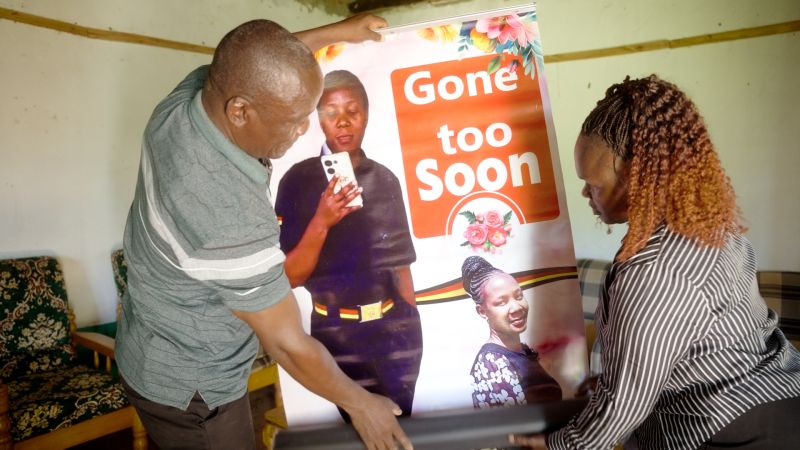Gender-based violence remains a pressing issue in Kenya, affecting numerous women across the country. A recent examination by CNN highlights the unique challenges faced by female police officers assigned to gender desks. These officers, responsible for addressing cases of gender-based violence, often find themselves grappling with their own victimization in a system plagued by mistrust.
The crisis of femicide in Kenya is underscored by alarming statistics. According to the Kenya National Bureau of Statistics, over 1,000 women were murdered in 2022, a stark indicator of the pervasive violence they face. This grim reality complicates the officers’ ability to effectively serve their communities, as many victims hesitate to report incidents of harassment and abuse. With public confidence in law enforcement dwindling, fear of retaliation or disbelief often silences those who have suffered.
Challenges Within the Police Force
Female officers working within the police force often find themselves in precarious positions. Not only are they tasked with supporting victims of gender-based violence, but they may also face harassment from their colleagues. In a profession traditionally dominated by men, these women navigate a complex landscape where they risk their own safety while seeking to protect others.
The experiences of these officers highlight a troubling paradox: while they are advocates for victims, they, too, can become victims within their own ranks. This duality challenges their effectiveness and underscores the systemic issues that permeate the police force. As one officer noted, “Even the person you report to can be a victim.” This statement encapsulates the harsh reality many female officers confront daily.
The lack of trust in the police exacerbates the situation. Many women fear that their reports of harassment will be dismissed or, worse, lead to further victimization. This hesitance is compounded by the perception that the system is not equipped to support them adequately. The difficulty in securing justice discourages many from coming forward, leaving numerous cases of gender-based violence unaddressed.
Efforts to Restore Trust and Support Victims
In response to the ongoing crisis, various organizations are working to restore public confidence in law enforcement and support victims of gender-based violence. Initiatives aimed at training police officers on gender sensitivity and providing resources for victims are crucial in this regard. Programs like the As Equals series by CNN aim to shed light on gender inequality issues and advocate for systemic change.
Moreover, community outreach programs that encourage dialogue between police and citizens are essential for rebuilding trust. By fostering an environment where women feel safe to report incidents, the police force can begin to change perceptions and improve their relationships with the communities they serve.
The multifaceted nature of the femicide crisis in Kenya demands immediate attention and action. Addressing the needs of female officers while simultaneously supporting victims of gender-based violence is essential for creating a safer and more equitable society. As the landscape evolves, the commitment to tackling these issues must remain steadfast, paving the way for a future where women can report crimes without fear of retribution.
Continued public and governmental support is vital to ensuring that the voices of victims are heard and that those tasked with their protection are equipped to do so effectively. Only through a concerted effort can Kenya hope to address the deep-rooted issues of gender-based violence and restore faith in its law enforcement agencies.





































































